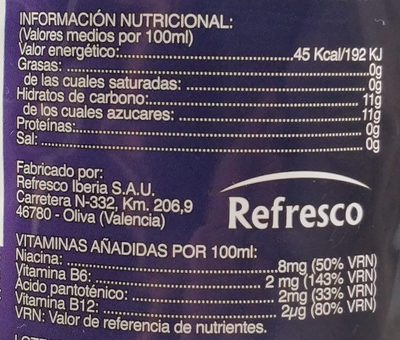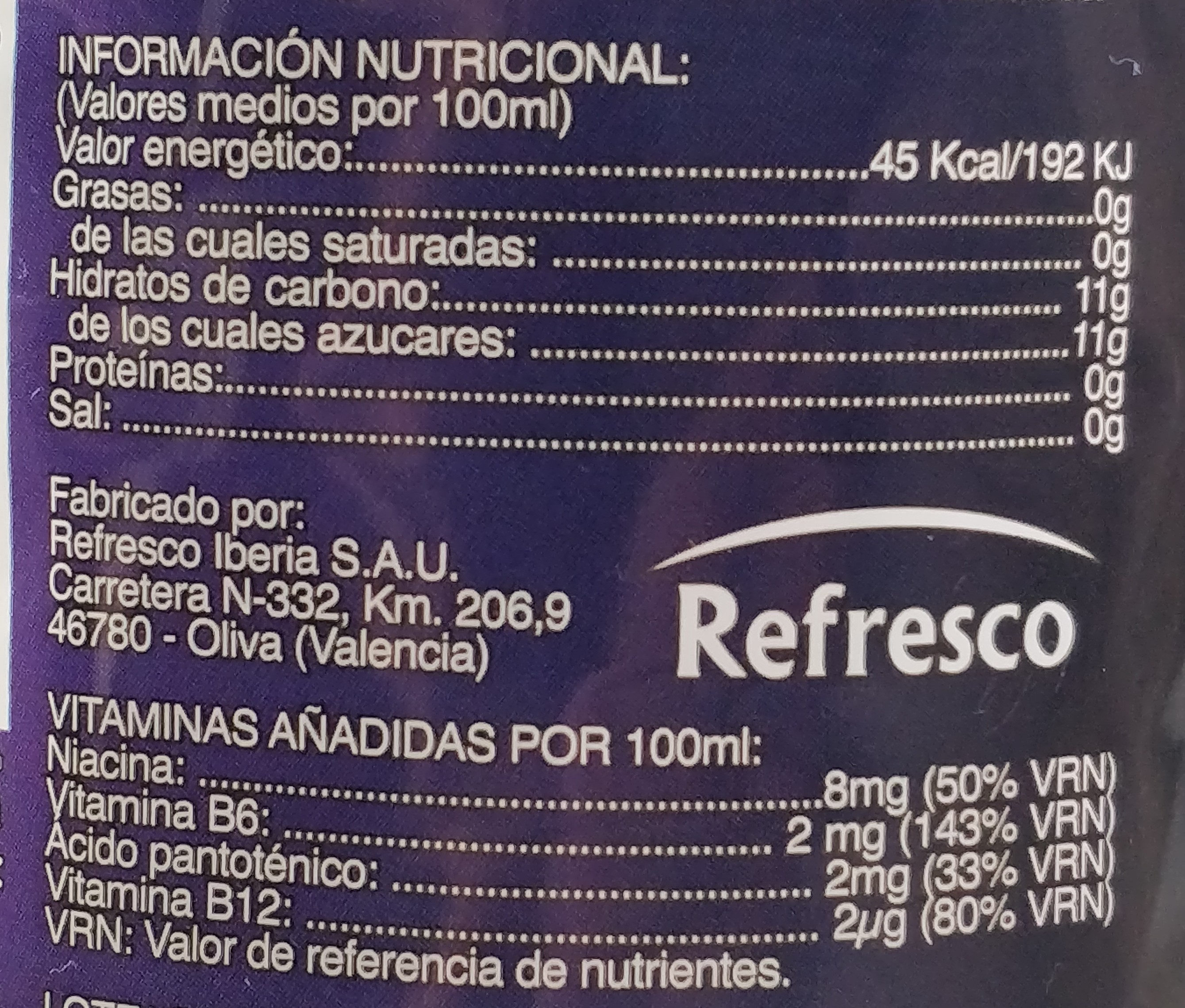Bebida energética - Hacendado - 1.5 l
This product page is not complete. You can help to complete it by editing it and adding more data from the photos we have, or by taking more photos using the app for Android or iPhone/iPad. Thank you!
×
Barra-kodea: 8480000279453 (EAN / EAN-13)
Kopurua: 1.5 l
Markak: Hacendado
Kategoriak: en:Beverages, en:Non-alcoholic beverages, en:Energy drinks, en:Sweetened beverages
Dendak: Mercadona
Saltzen diren herrialdeak: Espainia
Matching with your preferences
Ingurumena
Ontziratzea
Transportation
Report a problem
Datuen iturria
Product added on by food4thought
Last edit of product page on by rafael18.
Produktuaren orria -gatik editatua acuario, kiliweb, musarana, openfoodfacts-contributors, teolemon, yuka.UmJzaVFZTWJqYVFFcWZGZzJoYms2TjFLbklTSVRFU0lJZVEvSUE9PQ.
If the data is incomplete or incorrect, you can complete or correct it by editing this page.










